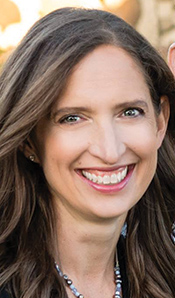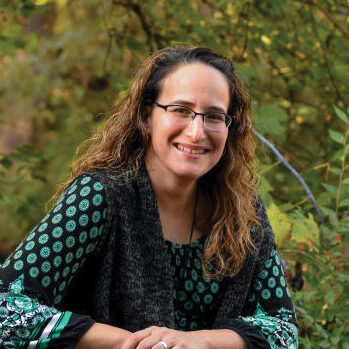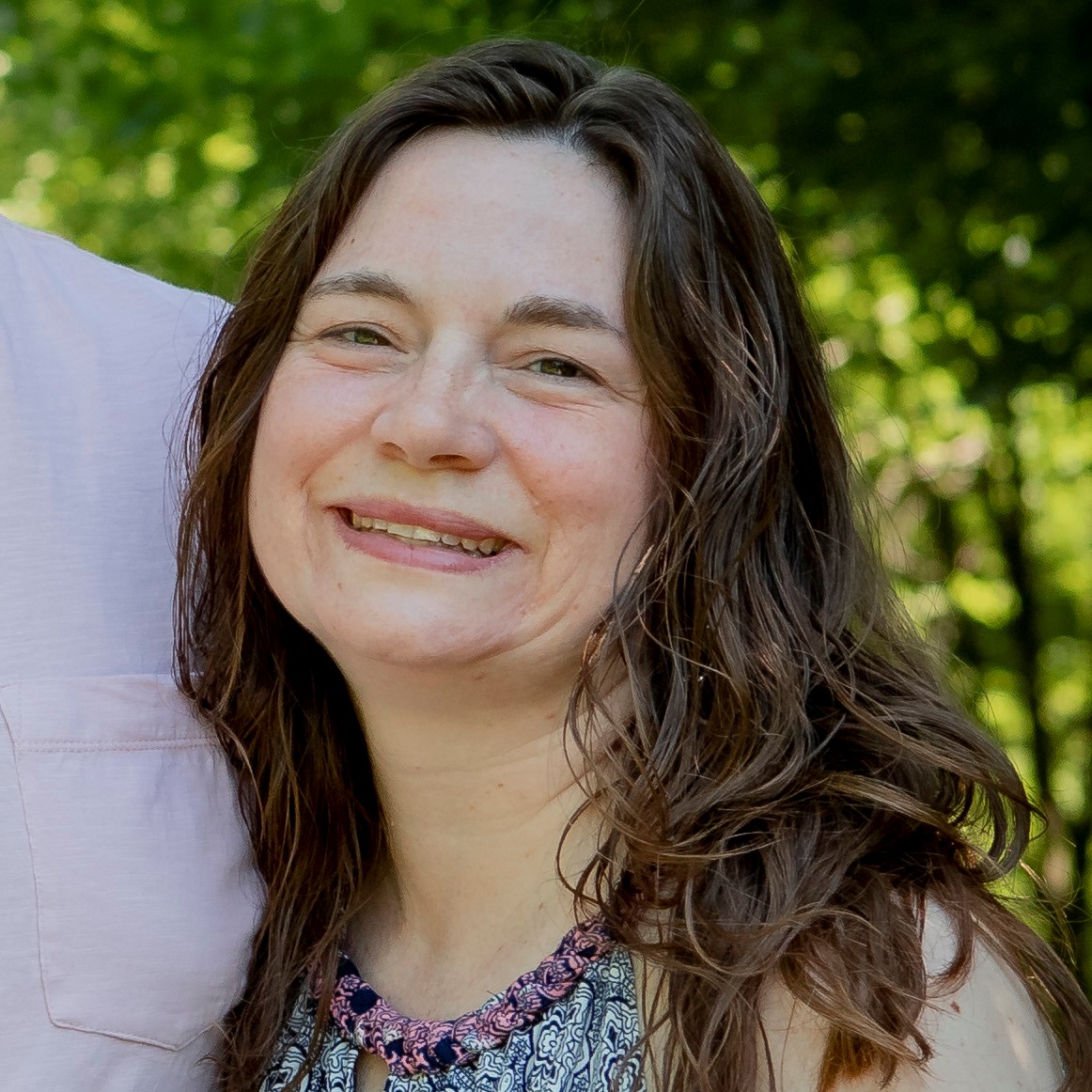 |
Many people enter conversations about vaccines with trepidation because opinions can vary widely. However, we at Forward in Christ think that it’s important to have conversations about places where your faith and your daily living may intersect. We know we won’t represent everyone’s viewpoints or make everyone happy. The articles here represent ways of approaching vaccines by Christian parents. They provide insight into some perspectives that might help you understand those who look at vaccines differently than you do. We invite you to share your views as well, but please remember as you do to speak in Christian love, especially if you are commenting on another’s approach.
Want one more viewpoint? Read “How I approach vaccines as a Christian physician.”
— Nicole Balza
HOW DO I APPROACH VACCINES AS A CHRISTIAN PARENT? My word limit isn’t enough to tackle such a nuanced, hot-button topic. However, highlighting those two words separately is a good place to start.
As a Christian parent, because vaccines aren’t in the Bible—obviously—I keep other principles in mind. First, I remember that we all love our children and we all want what’s best for them. While we absolutely can have serious conversations about health issues, we also take each other’s words and actions in the kindest possible way—whether parents have followed the recommended vaccination schedule, arranged a delayed schedule, declined some of the more-than-50 recommended doses, or haven’t approved a single shot. Unfortunately, I’ve seen Christians argue so passionately about healthcare choices that relationships are ruined. None of this sends the message to people outside the church that a spiritual family is a loving place.
As a Christian parent, I remember that God loves our children more than my husband and I do and he’s simply given us the privilege of raising them. Part of our parental responsibility includes making informed healthcare decisions that, in the interest of full disclosure, have changed over the course of our parenting.
Ultimately, I think all Christian parents could be a light in this dark world if we approach this topic with love and compassion.
With our first child, we initially followed the vaccine schedule. When our second child had an adverse reaction and it was reported to the Vaccine Adverse Events Reporting System database, I started doing more independent research. With our third child, I took that knowledge into account and worked with our doctor to delay his schedule. Now that one child is legally an adult and the other two are rapidly approaching that status, we talk about their fundamental right to informed consent.
To us, that means acknowledging vaccines’ positives and negatives. After all, thousands of people who get regular vaccines have never had an adverse reaction and many diseases with horrible side effects have been kept at bay. At the same time, vaccines also come with risks, for which the U.S. government has paid out more than $4.4 billion to injured citizens since 1988.
To weigh the rewards and the risks, we ask, “Is it effective?” and wade through the overwhelming amount of information included in the insert. Next, we ask, “Is it safe?” and determine if potential risk is acceptable compared to the potential complications of the disease the vaccine is trying to prevent. For our family, sometimes the risk has been acceptable and other times it has not. Thankfully, medical professionals have mainly supported our medical freedom. Some have worked with us, a couple have pushed back, and others have whispered that they agree.
In the end, we’ve considered all aspects, prayed about the decisions, and trusted God to be with us. We know not everyone will come to the same conclusion.
Ultimately, I think all Christian parents could be a light in this dark world if we approach this topic with love and compassion, not guilt messages or anger or bullying or name calling. After all, Satan loves it when vaccine conversations distract us from telling people about Jesus, the one who heals all our sins and diseases. In reality, people’s positions on vaccines aren’t nearly as important as their position before God on judgment day.
Linda Buxa
MY SON HAS COMPLEX MEDICAL NEEDS. Because of this, we are frequent visitors to our local children’s hospital. We often see staff there sporting pins that read “Vaccines make adults.” These medical experts obviously see vaccinations as a must-have, and they want us to know it. As parents, though, vaccinating our children can feel complicated. Many layers of issues need to be considered, and the information available can be difficult to sort through.
With our firstborn, my husband and I were concerned about the schedule and number of vaccines and how they might affect our daughter’s young body. Before she was born, we searched until we found a pediatrician who would use an adjusted vaccine schedule. The doctor delayed some vaccines and gave fewer at one time. I had read that this would enable my daughter’s immune system to respond better, and she seemed to do well with each vaccination. We were hesitant about flu vaccines and chose to forego them.
When our son came along, we expected that we would do the same adjusted vaccine schedule. But he was born with complex medical needs due to a genetic syndrome, and that plan didn’t work out.
As a baby, he was hospitalized frequently. Every time he had a common cold, he needed supplemental oxygen. Our lives went from playdates and moms group outings to sitting in the hospital praying at his bedside. During cold and flu season, we had to live very careful lives. We couldn’t gather indoors with others if they had even the smallest sniffle. We learned to ask pointed questions before visits and to leave gatherings or church early if we heard someone coughing or noticed sniffling. We began to see the huge impact of contagious illness and the blessing of vaccines in a different way.
When I pause to thank God for the blessings in my life, vaccines are on that list.
Our son’s doctors urged us that he should be vaccinated and have full immune workups. They also urged that everyone in our family be fully vaccinated. In a desire to have the best quality of life for him, we eagerly got his vaccines and did not use a delayed schedule. At this time, we began to get flu vaccines for the whole family.
Our youngest daughter has also changed the way that we approach vaccines. She was adopted through foster care. Before the adoption was final, she was required to have all of her vaccines on the CDC-recommended schedule. Thankfully, she always responded well to them. Adjusting them to a delayed schedule once they had all been started felt confusing and overwhelming. Combined with our son’s medical needs, changing to the adjusted vaccine schedule felt too difficult, so we continued to have her get them on the usual schedule. Today, she is healthy and fully vaccinated.
As a new mom, I researched. I felt knowledgeable, and I had a specific plan about how we would approach vaccines for our family. Now, 16 years into this journey, that whole plan has been scrapped. The things that bothered me about vaccines when my daughter was little still bother me. Vaccines aren’t without risk. Yet they protect us from so many things. I’m thankful during flu season that we are able to prevent our son from getting a life-threatening case of influenza. I have never worried that any of my children will need an iron lung to keep them alive. When my children cut themselves, we can get stitches and do not worry about them dying from tetanus. This past year of living with COVID in our midst has reinforced the value of vaccines. Even with all of their risks, I am utterly thankful for vaccines and the way that they allow our family to live without other risks. When I pause to thank God for the blessings in my life, vaccines are on that list.
Wendy Heyn
Authors: Multiple authors
Volume 108, Number 3
Issue: March 2021
- Parent conversations: How can parents and kids manage stress?
- Parent conversations: What do your prayers for your children include?
- Parent conversations: How do we resist making our parenting law-based?
- Parent conversations: What Bible passages do you turn to most as a parent?
- Parent conversations: How can we help kids develop positive, healthy habits?
- Parent conversations: What tactics do you use to encourage children to tackle difficult tasks?
- Parent conversations: How can we model good listening skills for our kids?
- Parent conversations: How do we help our kids move on from mistakes?
- Parent conversations: How can we instill gratitude in our children?
- Parent conversations: How can parents find the balance between being too restrictive and too permissive?
- Parent conversations: How can we teach kids to be good friends?
- Parent conversations: What life skills will help young people as they transition to adulthood?
- Parent conversations: How do we discuss death with our children?
- Parent conversations: What does it look like for a father to be a strong Christian leader?
- Parent conversations: How can we help young adults stay engaged in the church?
- Parent conversations: What do parents need to know about video games?
- Parent conversations: How do parents not let worry get the best of them?
- Parent conversations: How do we teach our kids to value all people?
- Parent conversations: When parenting philosophies differ
- Parent conversations: How can we help today’s overwhelmed teens?
- Parent conversations: How can parents maintain a healthy marriage?
- Parent conversations: You might be a Lutheran parent if . . .
- Parent conversations: Parenting post–high school: What is a parent’s role?
- Parent conversations: How can families use the hymnal in their worship life at home?
- Parent conversations: What should Christian parents teach their children about gender?
- Parent conversations: What is vocation? How does it apply to parenting?
- Parent conversations: Why do siblings fight? How should I react when they are fighting?
- Parent conversations: How do we teach children resilience?
- Parent conversations: How do I approach vaccines as a Christian parent?
- Parent conversations: How can I explain the Sixth Commandment to a young child?
- Parent conversations: How can I help my child have an optimistic outlook?
- Parent conversations: What if we can’t follow our Christmas traditions this year?
- Parent conversations: What are ways to foster a rich prayer life in children?
- Parent conversations: How can I let the gospel shine as I parent?
- Parent conversations: How should I handle a child’s separation anxiety?
- Parent conversations: How should families prepare to go back to school?
- Parent conversations: How does a teen’s brain work?
- Parent conversations: How much should I monitor my child online?
- Parent conversations: How can parents reassure children during an uncertain time?
- Parent conversations: How can I stay calm when my child is out of control?
- Parent conversations: Should I give something up for Lent?
- Parent conversations: How can I keep my child engaged in attending church?
- Parent conversations: How can we help a stressed-out kid?
- Parent conversations: How can we nurture a proper view of “stuff”?
- Parent conversations: How involved should parents be in a child’s homework?
- Heart to heart: Parent conversations: Are we modeling kindness for our children?
- Heart to heart: Parent conversations: What’s the best parenting advice you’ve received or given?
- Heart to heart: Parent conversations: How should we handle it when people undermine our parenting decisions?
- Parent conversations: How can we prepare children for summer camp?
- Heart to heart: Parent conversations: What’s a parent’s role as a child dates?
- Heart to heart: Parent conversations: How do parents find contentment?
- Heart to heart: Parent conversations: How can we help a family with a sick parent?
- Heart to heart: Parent conversations: How can parents model healthy cell phone use?
- Parent conversations: How can we protect kids without scaring them?
- Parent conversations: What does your family’s bedtime routine look like?
- Parent conversations: What do I need to consider before I give my child a cell phone?
- Parent conversations: How can we teach gentleness and strength at the same time?
- Parent conversations: What should we do when our children grow silent?
- Parent conversations: What should we teach our children about the Reformation?
- Parent conversations: Do we want our children to be leaders or followers?
- Parent conversations: How does a parent’s role change over time?
- Parent conversations: How should I handle a disagreement with my child’s teacher?
- Parent conversations: What are the building blocks of a strong parent/child relationship?
- Parent conversations: What is our goal as parents?
- Parent conversations: What Christmas traditions do you cherish in your family?
- Parent conversations: How can we raise a generation that cherishes life?
- Parent conversations: What are the best Bible story books for family devotions?
- Parent conversations: Why should children obey their parents?









